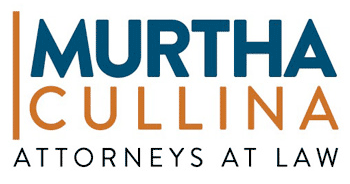TANGO Partners Perspective – October 2022
Three Practical Tips for section 501 (c) (3) organizations!
Ed Spinella, Partner
Murtha Cullina

Three Practical Tips for section 501 (c) (3) organizations!
Election day is nearly here as millions of people across the country will vote on important issues impacting their communities. While some Section 501(c)(3) tax-exempt organizations we work with confidently participate in the political landscape, far too many hesitate out of an unfounded fear of jeopardizing their tax-exempt status.
This Partners Perspective passes along three practical tips for Section 501(c)(3) organizations that currently engage in, or are interested in responsibly engaging in, advocacy, lobbying and other political activities.
Don’t Be Afraid
One of the most common misconceptions we run into is that Section 501(c)(3) organizations are restricted from participating in the political process. It’s true that Section 501(c)(3) organizations are prohibited from participating in political campaigns on behalf of (or in opposition to) public office candidates. However, there are a litany of other political activities that are fair game including, but not limited to, lobbying, provided that lobbying efforts do not constitute a substantial part of a Section 501(c)(3) organization’s activities. Indeed, the IRS explicitly acknowledges that Section 501(c)(3) organizations can lobby and since 1976 has enabled them to use a clear formula (called the Section 501(h) election) in order to demonstrate that they engage in a permissible level of lobbying. There are many other ways to participate including engaging in educational awareness campaigns for which there is no limitation on activities.
Consider Mitigating Risk by Creating a Special Advocacy Affiliate
If a Section 501(c)(3) organization desires to engage in a substantial amount of lobbying activities and/or is concerned of being subject to negative public scrutiny, it may be prudent for it to form a separate but affiliated Section 501(c)(4) social welfare organization. Social welfare organizations are permitted to engage in an unlimited amount of lobbying as it relates to public interest. However, it is imperative for affiliated organizations to observe fundamental corporate formalities (separate bank accounts, separate board of directors meetings, etc.) to ensure they avoid being “collapsed” into one another which in turn could endanger the Section 501(c)(3) affiliate’s tax-exempt status.
Encourage Community Involvement
For even the most risk adverse Section 501(c)(3) organizations, we believe there are various nonpartisan ways to encourage community involvement in the political process.
For example:
- Be an unbiased resource. Find ways to educate members of the community on how, when, and where to vote. Providing the community with reliable information on how to exercise their respective civic duties in and of itself is a great unbiased way to impact positive change without risking tax-exempt status.
- Responsibly sponsor activities. While Section 501(c)(3) organizations are prohibited from publicly supporting or opposing a particular candidate, they can host activities such as debates and appearances for current candidates provided: (1) the organization makes it clear that it is not actively supporting or opposing any particular candidate, and (2) candidates are provided equal opportunity to participate.
- Facilitate access to voting. A great way to help during ongoing elections is to make sure that members of the community are ready and able to vote on election day. This can be achieved in a variety of ways, including by organizing free rides to various poll locations, hosting voter registrations, and any other activities that help eliminate common obstacles that might otherwise prevent constituents from voting. The key is to conduct these efforts in a neutral, nonpartisan manner. There are no specific limits to these activities imposed by the IRS.
CONTACT OUR
TANGO PARTNER
Ed Spinella
Partner
Murtha Cullina
Phone: (860) 240-6059
Email:
www.murthalaw.com
